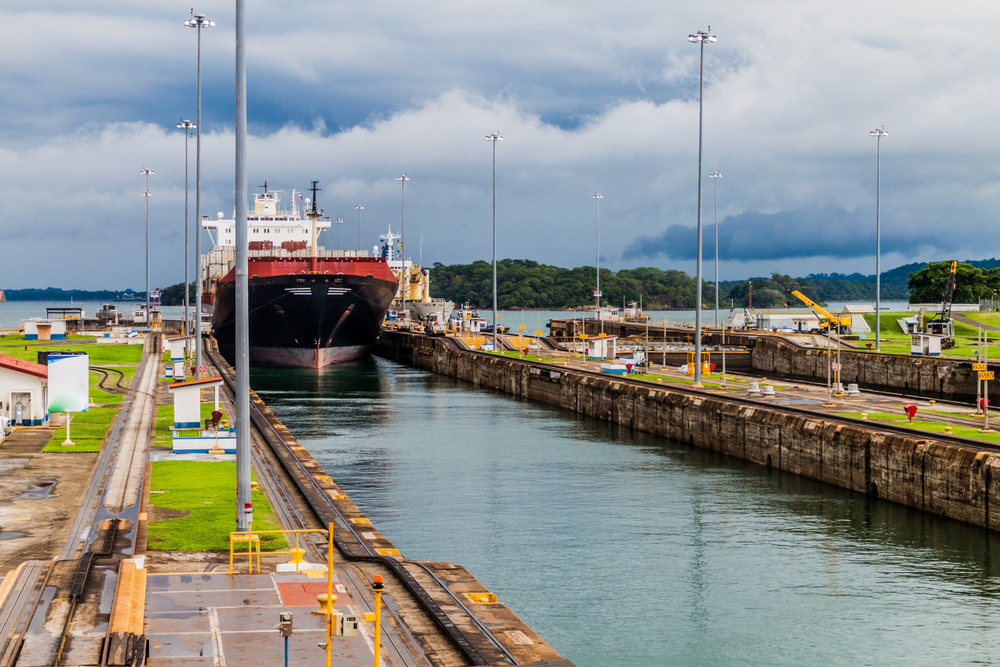CRDF Global Experts Brief Panamanian Minister of Industry and Commerce on Managing Trade in Dual-Use Goods

On July 22, 2020, CRDF Global Subject Matter Experts Dr. Michael Beck and Dr. Scott Jones delivered a briefing to the Panamanian Minister of Commerce and Industry, Ramón E. Martínez de la Guardia, outlining the economic benefits of regulating trade in dual-use goods. This briefing came as a result of a direct request from Panama’s Ministry of Commerce and Industry (MICI) to the U.S. Department of State’s Office of Export Control Cooperation (ECC) Panama-based Regional Advisor, Ms. Shaleen White. CRDF Global is currently engaged in ECC-sponsored activities in the Republic of Panama (ROP) which are focused on building that country’s capacity to enforce United Nations sanctions such as those against the Democratic People’s Republic of Korea (DPRK).
The ROP’s operation of the Panama Canal and strategic location on the isthmus connecting North and South America make it a major transit/transshipment hub for cargo originating from all over the world. While this status as a global crossroads makes the ROP a major player in the world economy (which comes with myriad economic benefits), it also exposes the country to exploitation by malicious actors. Smugglers – state-sponsored or otherwise – make consistent efforts to disguise their illicit activities among the massive volume of legitimate trade moving through Panamanian territory every year. This issue came to a head in 2013, when the DPRK-flagged cargo ship Chong Chon Gang was stopped while attempting to transit the Canal. Upon inspection, that vessel was found to be illegally transporting weapons and military equipment from Cuba to the DPRK, hidden under roughly 10,000 sacks of sugar.
CRDF Global and ECC are working with partners in the Panamanian government to address this threat while also respecting Panama’s need to facilitate trade and foster economic growth within the country. It is in this context that Dr. Beck and Dr. Jones briefed Minister Martinez on the importance of managing trade in strategic and dual-use goods. They identified specific measures, including revision of existing laws and regulations and the establishment of a robust trade licensing system, that would reduce Panama’s attractiveness as a target for malicious actors ranging from smugglers of counterfeit goods to proliferators of weapons of mass destruction.
Dr. Beck and Dr. Jones also took time to detail the potential economic benefits of implementing these measures. Creating a culture of responsibility and transparency within the Panamanian business environment will increase predictability and attract increased investment from high technology companies and large multinational corporations. Here, the experts presented empirical and anecdotal evidence based on the situations of Singapore and Mexico, both of which instituted strong strategic trade management systems and have since enjoyed an influx of foreign direct investment.
At the conclusion of the briefing, Minister Martinez thanked Dr. Beck and Dr. Jones for their advice and assessments of Panama’s current status. Minister Martinez also thanked ECC for their continued assistance in the realm of trade management. He noted that the prosperity experienced by Singapore and Mexico in the wake of their adoption of strategic trade management systems helped to assuage his concerns of restricting legitimate trade. The Minister signed off with the following statement: “On behalf of President Cortizo, I appreciate all of the efforts that your agency is making to get Panama to improve, to raise the bar such that Panama is considered to be a safe and secure place of best practices. Let’s go forward with this.”



